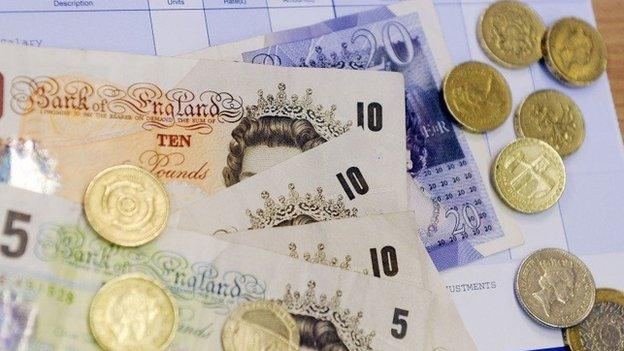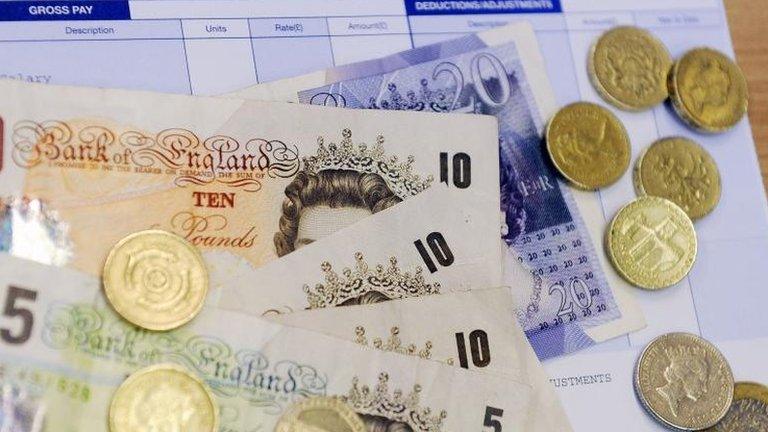New minimum wage could mean fewer pay rises
- Published

Politicians must act to make sure a higher minimum wage does not leave thousands stuck for years on the lowest possible pay, according to the Resolution Foundation.
In cities like Sheffield and Hull almost a third of workers can expect higher wages, the living standards think-tank says.
But it fears that could see "one wage towns" where employers cope with higher salaries for their most junior staff by failing to put up pay for more experienced workers.
The Office for Budget Responsibility has said the policy could cost 60,000 jobs.
Paul Harrison, managing director of Sheffield coach firm Central Travel, told the Today programme, external: "I believe long term we'll probably have to lay people off unless we can put up prices with schools and colleges."
The minimum wage for over-25s will be raised to around £9 by 2020. The Treasury describes this as a National Living Wage.
The Resolution Foundation was mentioned by the Chancellor George Osborne when he announced the higher wage in the summer budget.
It wants city regions that are to be given extra powers - like Manchester and Sheffield - to help businesses with planning and skills shortages.

Share of workers affected by 2020
Hull - 31%
Sheffield - 28%
London - 14%
Oxford - 13%

The Foundation's head Torsten Bell said many firms didn't know how to respond, and local politicians needed to take action.
He said: "They should be focusing on raising awareness in local businesses in their area, particularly in those businesses most affected."
A government spokeswoman said: "The independent Office for Budget Responsibility expects the National Living Wage to cost business just 1% of corporate profits. This will be offset by cutting corporation tax to 18% and reducing national insurance contributions for smaller firms."
Several large employers including Sainsbury's and Lidl have pledged to put up pay before the new rules come in.
- Published2 November 2015

- Published14 December 2015

- Published1 November 2015
